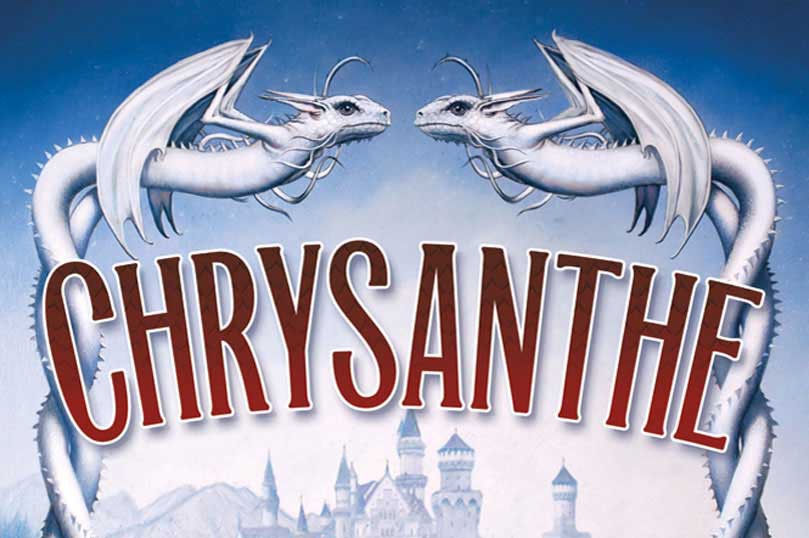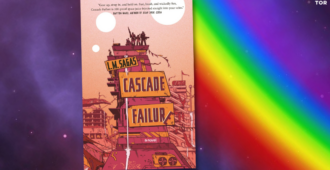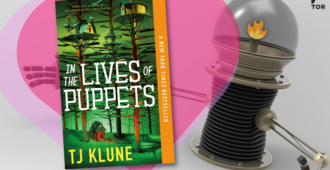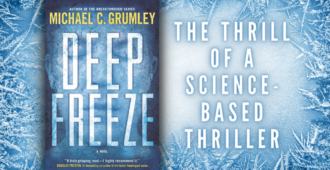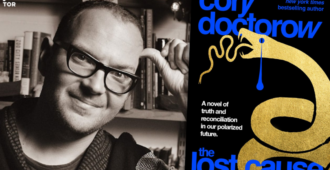I heard a story once about two 12-year old boys who were discussing a certain fantasy book I shall not name, and pronounced it way better than The Lord of the Rings—because its magic system was more consistent.
Ridiculous, yes—but I can’t quite dismiss the criticism. Fantasy depends on magic more closely than SF depends on science. It gets embarrassing when the very core of a book disintegrates upon closer examination. Science offers us an extensive vocabulary, an army of concepts we can twist and skew behind our backs, to produce stories that seem to hang together, as long as you ignore a stray wire or two.
Magic is a different matter. It makes sense within the field of symbols, or when it evokes well-worn concepts we have been brought up to believe. But that won’t suffice for what I want to do, as a writer. I’ve got a hypertrophied, over-dramatic imagination: I need powerful wizards casting spectacular spells… And a way to explain why everyone else isn’t doing the same thing, why you can’t just belch out fireballs like a machine-gun, or why you’d spend your energies doing subtle work instead of just nuking the bad guy’s castle.
So I cheat, of course. Mages have to be both born and bred, rare by virtue of innate talent. I decree that magic is inherently arbitrary, a field forever beyond its practicioners’ comprehension. I postulate that spellbooks dissolve at the death of their owners that wizardly lines thin out and die over the centuries that some spells are forgotten and lost for eternity.
On Thursdays it feels right; on Fridays it seems like a total cop-out.
Fantasy role-playing games have given us the Curse of the Magic System: over every attempt to articulate a rationale for magic hangs the specter of Fizban the magic-user casting a fireball for 10d6 of damage. To make magic coherent and logical destroys its essence. Gandalf cannot be reduced to an eighth-level cleric with the ability to use edged weapons.
And yet, if we let magic be too mysterious, it sublimates into a plot device, a convenient excuse to make things work out the way you want. That won’t do. So we risk coming full circle, shying away from mystery only to plunge back into mundanity.
As a possible way to ground magic in reality without having to rationalize it as such, I have been wanting to deal with what it feels like for its practitioners. Not the mystical thrill of power, but the more concrete aspects of a demanding discipline. And so one of the aspects of Chrysanthe I like best is the details of Melogian’s mastery of her art. I’ve used magic profusely in the book, going to extremes when the plot demanded it; as a way to atone for these sins against believability, I’ve tried to give a glimpse into the professional life of an adept. The rituals, the gestures and words, the mind-twisting wielding of the power itself, the way it resonates across Melogian’s existence, as she finds herself enmeshed in the inner workings of the world, an unwilling fulcrum of fate when all she ever wanted to do was shape flowers out of dreams.
Melogian would believe Chrysanthe is in truth her story rather than Christine’s. She may well be right.
…………………………
From the Tor/Forge February newsletter. Sign up to receive our newsletter via email.
…………………………
More from our February newsletter:
- Surviving Dystopia by Kristen Simmons
- A Preview of Girl Genius by Phil Foglio and Kaja Foglio
- Q&A with Claire Ashgrove

